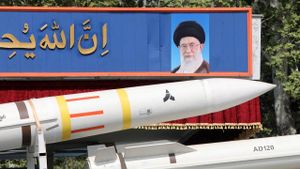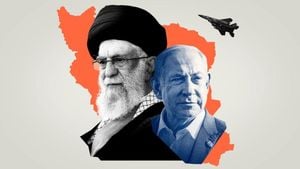Political tensions are flaring up in India as significant allegations concerning the financial dealings of the government and its trade agreements come to light. Key among these disputes is the India-UAE Economic Partnership Agreement (EPA), which has sparked fierce criticisms from the opposition, particularly the Congress party.
Recently, Congress general secretary Jairam Ramesh accused the Modi government of signing the India-UAE EPA with major irregularities. Ramesh highlighted concerns over how the agreement was negotiated and implemented, claiming it introduced serious loopholes affecting India's economy. He raised alarms over the rapid rise of India's silver imports from the UAE, which soared from just $2.2 million to $1.44 billion between January and April of 2024, marking a staggering 647 times increase.
"The UAE has unexpectedly become India’s largest supplier of silver, accounting for 45 percent of total silver imports," Ramesh stated, emphasizing the need for scrutiny over the agreement's implementation. Ramesh pointed out the glaring discrepancy: the UAE is not known for silver production, calling the jump suspicious and raising doubts about whether India's regulations are being adequately enforced.
One key aspect of the EPA is the import duty structure placed on platinum alloys, which allows traders to circumvent higher taxes on gold. Ramesh accused the government of compromising India's revenue, estimating losses of around ₹1,700 crore due to the misclassification of these alloys. According to Ramesh, this loophole is being exploited to import gold under misleading pretenses, contravening India's strict regulations on gold trade.
While the Congress party continues to call for accountability, the government has remained largely silent on these allegations. This has raised more questions than answers, fueling protests and discussions about transparency and governance.
Political analysts suggest the timing of these accusations is significant, as general elections loom on the horizon. The Congress party has framed their critiques as part of a broader narrative against the ruling party, focusing on accountability for the economy and governance.
On another front, Prime Minister Modi addressed the nation at a rally in Jharkhand, where he took jabs at opposition parties like the JMM, RJD, and Congress, asserting their incompetence. Modi’s speeches often highlight themes of national security and governance as he attempts to divert attention from economic criticisms. At the rally, he emphasized his government’s commitment to local governance and security, aiming to bolster his party's narrative against infiltration by external elements.
Modi's comments reflect the BJP's broader strategy of framing opposition parties as dysfunctional. This tactic serves both to consolidate his base and distract from the economic issues raised by Congress.
With tensions rising, both Congress and the BJP are vying for public opinion as they prepare for the upcoming election campaigns. The Congress party's focus on the allegations around the EPA and security issues could resonate with sections of the electorate who are increasingly concerned about economic management.
Create insightful discussions around issues of governance, economic transparency, and trade agreements at this pivotal juncture for India’s political climate. The outcome of these disputes could significantly influence public perception and voter sentiment heading to the polls.
It remains to be seen how the Modi government will address these allegations, and whether Congress can leverage these claims to gain momentum. Political analysts are watching closely, as the potential fallout from these disputes could reshape not just the political arena but also affect the economy as new regulations come under scrutiny.



